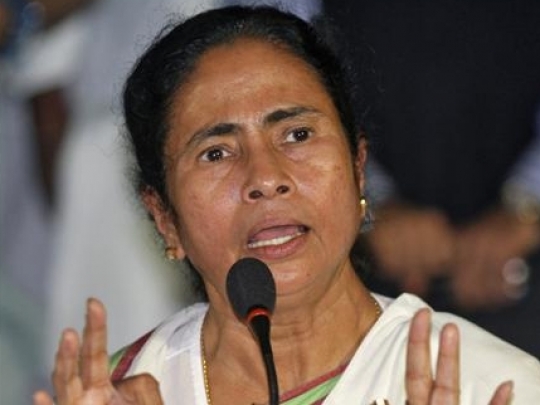
New Delhi, September 19: Congress president Sonia Gandhi will meet top leaders of her party this morning to discuss the crisis triggered by Mamata Banerjee's withdrawal of support to the UPA government. The Congress' core group meeting is scheduled for 10 am and will be attended by Prime Minister Manmohan Singh, Defence Minister AK Antony and Finance Minister Chidambaram.
Yesterday, Ms Banerjee pulled out of the UPA coalition, in which her party was the second-largest member. The west Bengal Chief Minister said her six ministers will resign on Friday at 3 pm in protest against a menu of new reforms introduced by the government last week, including raising diesel prices, restricting the supply of subsidised cooking gas to six cylinders per household, and opening up India's huge retail sector to foreign super-chains like Wal-Mart. Ms Banerjee described those decisions as "a disaster for the poor" and said her party had been shown minimal respect by the UPA.
Sources in the Congress say that party president Sonia Gandhi will now try to negotiate a compromise - while there will be no reversal of the retail reforms, the government may agree to a partial rollback in diesel prices, along with increasing the cap on LPG cylinders from six to nine per year.
The Prime Minister has, according to sources, driven home the point that he is committed to the reforms needed to jumpstart the economy; he allegedly told senior ministers that their government "must stay the course" and that it has "an unfinished agenda" for the economy for which it will allow "like-minded people" to help.
With the support of Mulayam Singh Yadav and Mayawati, the UPA still has more than 300 MPs on its side. It needs 272 to stay in power. But the government will now be more vulnerable to demands from those partners, who are both opposed to FDI in retail.
Before it decided to implement 51% Foreign Direct Investment or FDI in retail, the government had calculated its political risks. Ms Banerjee has 19 Lok Sabha MPs. Mulayam Singh Yadav and his Samajwadi Party, who provide external support to the UPA, have 22. Ms Mayawati and her Bahujan Samaj Party (BSP) have another 21. So though the UPA is in a minority without the Trinamool Congress, it can be propped up by Mr Yadav and Ms Mayawati.
Mr Yadav landed in Delhi on Tuesday night and plans to meet with the Left and other parties to gauge their reaction to the UPA's new position. "Don't take us for granted," warned his party's Ram Gopal Yadav after Ms Banerjee's announcement. "We will not join the government. Any party that does so will be wiped out in 2014," he said, adding that his party will decide its next move after an all-India bandh or strike on Thursday to protest against the Centre and its decisions on FDI and the new diesel prices. In the South, the DMK, another member of the UPA, has decided to participate in that bandh. Party chief M Karunanidhi, whose 18 MPs are part of coalition at the Centre, will make a statement, after a party meeting today, on where the DMK stands in the new political landscape.
The Congress is now said to be counting on Mayawati's Bahujan Samaj Party and some Independents to keep it in a majority in the Lok Sabha. Sources in Mayawati's party say she will decide on her relationship with the UPA at a meeting of her party on October 10. The BSP has voiced demands very similar to Mamata Banerjee's - a rollback in diesel prices and on the new norms for LPG. It also wants the government to withdraw the decision on FDI in retail. But unlike Ms Banerjee or Mr Yadav, who are riding recent electoral successes and would not mind mid-term elections to extend their gains, Ms Mayawati is still smarting from her defeat in Uttar Pradesh this year and she will not want early polls since she is unlikely to make too many gains.





Comments
Add new comment